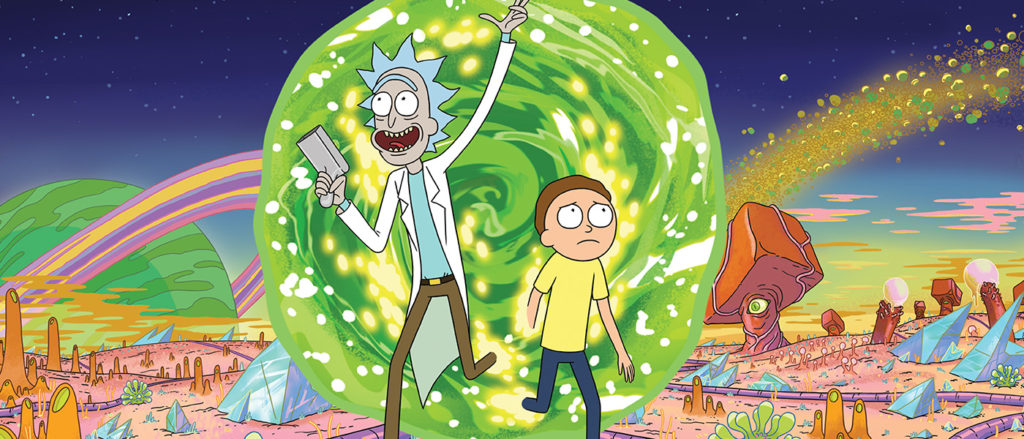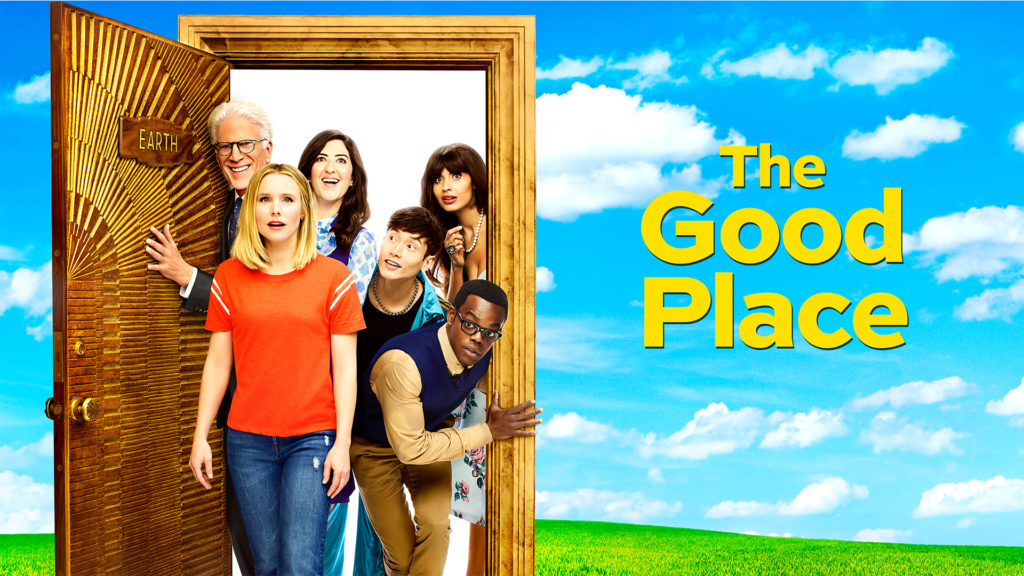People Need Other People to Become People, or: How Cynicism is Hurting the Left
The present and past of leftist metaphysics

The United States is a vile, violent empire, murdering its own citizens. Though it calls itself the greatest nation on earth, the United States is a breeding-ground of moral hypocrisy. It produces more greenhouse gases than any other country but China. It has the highest rate of incarceration in the world, housing 22% of the world’s prisoners. It claims to bring peace to the world, but allies itself with tyrants and dictators, invades countries, and massacres their citizens to “give” them democracy. As police and federal agencies stand idly by, domestic terrorism skyrockets to heights not seen in years. And, while the poor die in their homes and in the streets, the world’s rich flock here to build monuments to their wealth in cities that have become simulacra of already dystopian suburbs.
But these problems are not new. At the turn of the twentieth century, the United States also described itself as the world’s savior. Meanwhile, pollution darkened the skies and epidemics raged across overcrowded cities. As the United States allied itself with colonial powers and against newly decolonized nations, it waged a violent and disastrous war on the Philippines to “liberate” them into “democratic” American rule. As federal and state governments stood idly by, the Ku Klux Klan took over whole political apparatuses and the governments of multiple states, and racially-motivated lynchings riled the nations at unprecedented levels. The rich built walled fortresses of fairytale proportions, while the poor died in their homes and in the streets.
In the late nineteenth century, a number of radicals and reformers, with a wide range of different metaphysical commitments, sought to fight every form of moral hypocrisy they saw. Among these people were theosophical women’s rights supporters, mystical socialists and arch-materialistic anarchists. There were Christian anti-lynching crusaders, Jewish suffragists, and secular, free-speech and sex-radical crusading liberals. One of the only things that united these diverse groups (who collectively agreed on very little) was a firm belief that the world could and would change.
Now, just as a hundred years ago, there are a number of metaphysical positions that are animating meaningful social reform. There is the reformed and reconstructionist Jewish focus on Tikkun Olam, or repairing the world; the liberal Christian duty to bring God’s kingdom to reign on earth; and the Muslim precept that humans have a duty to aspire to be Awlia’ Allah, or friends of God. There is the Luciferian faith in enlightenment and humans achieving it together, the feminist philosophical ethical focus on caring for oneself and other people, and the Marxist argument for a duty to organize and destroy class divisions. Socialists and anarchists still fight for the rights of the poor, queer people and their allies still fight for their rights to alternative sexual frameworks, advocates of racial justice still fight for the rights of African Americans and other minorities.
But, in the face of the American empire’s violence, police brutality, mounting student debt and poverty, there is one metaphysical position that has become unprecedentedly popular and trendy among young people. This is a cynical rejection both of the world, and of any hope for changing it. This position understandably appeals to disaffected and marginalized people. People who feel that a changing society has left them behind, and who are the victims of the United States’ wars against its own citizens, and others. At the same time, Americans of all backgrounds are feeling more marginalized and alienated than at any point in the measurable past. In 2017, the former Surgeon General of the United States declared that we are facing a “loneliness epidemic.” Some sources claim has it only gotten worse, with nearly half of Americans lacking regular meaningful face-to-face social interactions.
While it is understandable that many people feel cynical and nihilistic, these worldviews, can only make them feel more marginalized, and cannot offer any escape from alienation. Contemporary cynicism relies on a distinct metaphysical framework I call nihilistic materialism. This framework is built on a commitment to a series of interrelated positions: that everything is futile, that all values are relative and none inherently better to aspire to than others, and that there is no larger point to life other than fleeting pleasure. This position does not offer any positive values around which to construct a meaningful life. It has, as a result, been coopted across the United States to sell meaningless consumer goods to “ironic,” but no less real, consumers. Nihilistic materialism fundamentally denies the one position that all other leftist metaphysics share: that society can improve through human cooperation, and that we have a duty to struggle for its improvement.
 American popular culture is suffused with television shows exploring the metaphysics of nihilistic materialism, including Bojack Horseman, Atlanta, The Eric Andre Show, and It’s Always Sunny in Philadelphia. No T.V. show exploring this position, however, is more popular than Rick and Morty. Since its debut in 2013, Rick and Morty has garnered a massive following, first cult, and now mainstream. It is currently the most watched prime-time show among 18-35 year-olds. In each episode, Rick, the smartest man in all possible universes, and his grandson Morty, a somewhat dimwitted though goodhearted teenager, go on a different adventure, exploring a brutish multiverse where life is inherently meaningless, all people are fundamentally alone, and the only way to deal with that reality is to pursue one’s individual hedonistic pleasures. The show’s philosophy can be summed up in a line uttered by Morty to his his sister after learning that their parents’ lives might have been better off without her that has been meme-ified by its fans: “Nobody exists on purpose. Nobody belongs anywhere. Everybody’s gonna die. Come watch T.V.”
American popular culture is suffused with television shows exploring the metaphysics of nihilistic materialism, including Bojack Horseman, Atlanta, The Eric Andre Show, and It’s Always Sunny in Philadelphia. No T.V. show exploring this position, however, is more popular than Rick and Morty. Since its debut in 2013, Rick and Morty has garnered a massive following, first cult, and now mainstream. It is currently the most watched prime-time show among 18-35 year-olds. In each episode, Rick, the smartest man in all possible universes, and his grandson Morty, a somewhat dimwitted though goodhearted teenager, go on a different adventure, exploring a brutish multiverse where life is inherently meaningless, all people are fundamentally alone, and the only way to deal with that reality is to pursue one’s individual hedonistic pleasures. The show’s philosophy can be summed up in a line uttered by Morty to his his sister after learning that their parents’ lives might have been better off without her that has been meme-ified by its fans: “Nobody exists on purpose. Nobody belongs anywhere. Everybody’s gonna die. Come watch T.V.”
In the Rick and Morty multiverse, all human interactions are inherently exploitative, and any attempts to build family and community are doomed to failure and exploitation. Love, the show makes clear, is a delusion. As Rick warns Morty, “what people call ‘love’ is just a chemical reaction that compels animals to breed. It hits hard, Morty, then it slowly fades, leaving you stranded in a failing marriage. I did it. Your parents are gonna do it. Break the cycle, Morty. Rise above. Focus on science.”
In fact, the show depicts all forms of community as inherently violent and exploitative, especially organized religions. In “Get Schwifty,” the fifth episode of season two, the people in Rick and Morty’s town begin worshipping a group of giant heads that have appeared in the sky. Under the cult, children obey their parents, everyone happily helps each other, and society seems to run well. This order, however, comes at the expense of dissenters, who are ritually sacrificed to the heads. As this episode makes clear, humans will only help each other or enjoy their social system if they are being violently forced to do so. Rick’s skepticism saves the day, when he recognizes the heads as the judges of an intergalactic singing competition. To save the planet, Rick and Morty sing a song about embracing passion and physical pleasure:
You gotta get schwifty
Oh, yeah!
Take off your pants and your panties
Shit on the floor
While absurd, these lines parallel a central message of the show: humans have no reason not to just gratify every lust and desire. Following this line of logic, Rick can justify building and enslaving an entire planet to power his spaceship, or selling weapons to assassins to fund a trip to an arcade.
Thousands have taken Rick and Morty’s philosophy into the real world. For example, in the aftermath of season 3 episode 1, “The Rickshank Rickdemption,” in which Rick declares his obsession with a defunct McDonald’s condiment, Szechuan Sauce, thousands of viewers in the real world gathered in search of it, as McDonald’s, profitably in on the joke, rebooted the sauce for a day. The lines grew down the block. The fast food chain quickly ran out of the sauce. Thousands complained to corporate. Across the internet, an outrage brushfire roared, engulfing even the mainstream news for multiple days. The outgrowth: an underground economy where people were willing to buy framed photos of the sauce for $10. One fan even bought a packet of Szechuan Sauce for upwards of $4,500 at an auction. In response, the show-runner, Dan Harmon, stated that “It’s really funny because if you’re going to get robbed, get robbed by McDonald’s.” If everything is nothing, if all consumption is inherently unethical and humans are inherently unethical, then why not just buy your fleeting happiness at McDonald’s?
 The incident highlights how easily nihilistic materialist metaphysics can fuse with consumerism, promising people brief respite from existential misery and loneliness if they buy the right things. Pragmatically, this response is a cynical rejection of social and political participation. This leads its adherents to becoming miserable, justifying both their rejection of the world and their resentment of “having” to reject it. Harmon has famously had his own struggles with nihilistic materialism. He has admitted that feelings of loathing and meaninglessness have lead him to disrespect and abuse one of the writers on his earlier show Community, and his girlfriend in 2014.
The incident highlights how easily nihilistic materialist metaphysics can fuse with consumerism, promising people brief respite from existential misery and loneliness if they buy the right things. Pragmatically, this response is a cynical rejection of social and political participation. This leads its adherents to becoming miserable, justifying both their rejection of the world and their resentment of “having” to reject it. Harmon has famously had his own struggles with nihilistic materialism. He has admitted that feelings of loathing and meaninglessness have lead him to disrespect and abuse one of the writers on his earlier show Community, and his girlfriend in 2014.
There are, however, a number of places in popular culture where people seek to explore a whole variety of different metaphysical positions that can lead to meaningful social change. NBC’s popular sitcom The Good Place even places itself in direct conversation with nihilistic materialism. The show is one of the most metaphysically heterodox shows on television, mostly taking place in an afterlife seemingly drawn directly from nineteenth-century spiritualist pamphlets.
The show (alert: spoilers ahead) takes place in a universe where there are multiple levels of heaven and hell, where demons and angels have personal problems, and where even the immortal judge who adjudicates all of the heavens makes mistakes sometimes. In this world, people’s place in an unfinished afterlife is determined by their good deeds while alive. Where Rick and Morty’s nihilistic materialism posits the solution to the problem of “how to live?” as solvable by seeking pleasure and material goods, The Good Place’s metaphysics posits a wholly different solution: humans can become good because of the meaningful relationships they are capable of forming.
The Good Place follows four people as they try to become better people after they have died and found themselves in hell. Each one had lived in environments that made them, in various ways, bad. The main character, Eleanor Shellstrop, was born and raised as a selfish, miserable middle-class American in Arizona. The British-Pakistani heiress Tahani El-Jameel grew up in her sister’s shadow. The Floridian amateur D.J., Jason Mendoza’s family and friends encouraged him to live in cycles of partying and petty crimes. And the cripplingly indecisive Senegalese moral philosophy professor Chidi Anagonye, who seeks answers on how to live in his vast learning, but, finding only contradictory answers, never knows the right thing to do.
Eleanor starts the show as the physical embodiment of nihilistic materialism, mistrusting all human relationships. As a child, she was neglected by her deadbeat father and con-artist mother, and consequently emancipated herself from her parents at a young age. As she grew up, this vision of her childhood led Eleanor to justify her nihilistic materialism: rejecting all human connection and skipping from selfish pleasure to pleasure. She spent most of her life exploiting the elderly and her friends for profit, consuming copious amounts of alcohol, and cruising from hookup to hookup. In this, Eleanor sees herself as an average American from a place where everyone is selfish, miserable, and out for themselves.

In meeting Tahani, Jason and Chidi, Eleanor is forced to start rethinking her views of the world. More than that, she finds that she enjoys doing things for and with her friends. After pushing Chidi to teach her about moral philosophy for selfish reasons, Eleanor discovers that it is not the philosophy itself, but rather how she learns to apply it in the world that makes her better. It is not abstract Trolley Problems that allow Eleanor to conceive of and strive for goodness, but rather the friendships that she builds in studying that philosophy. In her life, Eleanor had believed herself completely incapable of human connection. After death, not only does she make friends, but in season 1 episode 7, “The Eternal Shriek,” even falls in love with Chidi and briefly becomes his partner.
Eleanor, then, not only learns that her childhood needn’t control her, but also that, with the right friends, she is capable of fundamentally changing her personality and enjoying her existence significantly more. In fact, Eleanor’s character shift is so surprising that the demon who devised her particular portion of hell seeks to become a better person himself.
Mirroring Rick and Morty’s nihilistic materialism, many resign themselves to the belief that exploitation is the ideal state of human life and that we ought to just buy our friends and our happiness. Shows like The Good Place should remind us that there are many reasons, and just as many ways, to seek to reform the world. All of these different impetuses to reform, however, start from the precept that people need other people to learn why and how to live. Without other people, or any larger value structures, they become wandering wells of misery. Nihilistic materialism is not a viable form of critique or social reform. It is a form of giving up. And in the face of a world filled with moral hypocrisy, violence, and exploitation, giving up is the only wrong answer.
***
Daniel Joslyn is a PhD candidate at New York University, studying a group of sexual mystics in the late nineteenth-century United States and their influence on U.S. culture and politics. Daniel loves weirdos, especially wandering weirdos, who turn out to be much more influential than we expect. He is currently most interested in a Gilded Age cult, their conceptions of good sex and relationships, and when they show up in liberal, socialist, feminist, and anarchist movements.
***
Published with support from the Henry R. Luce Initiative on Religion in International Affairs.